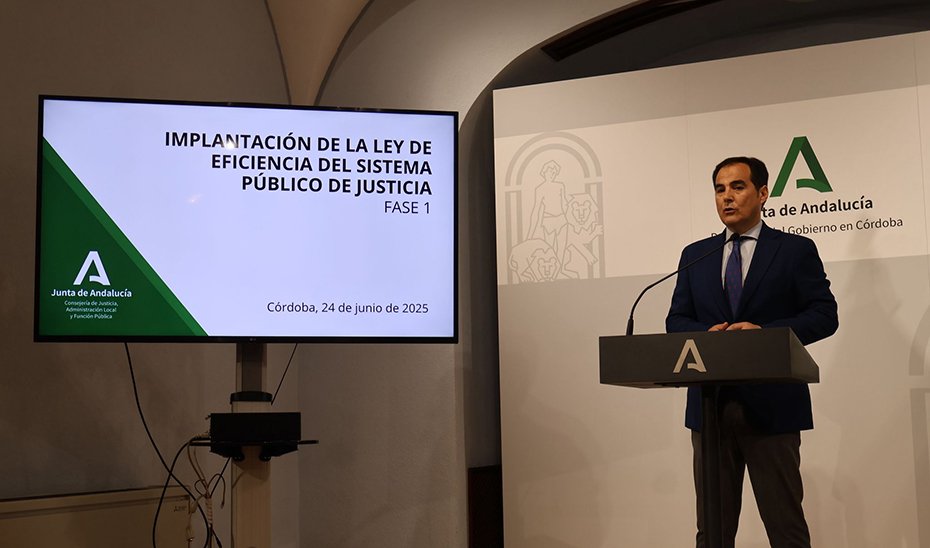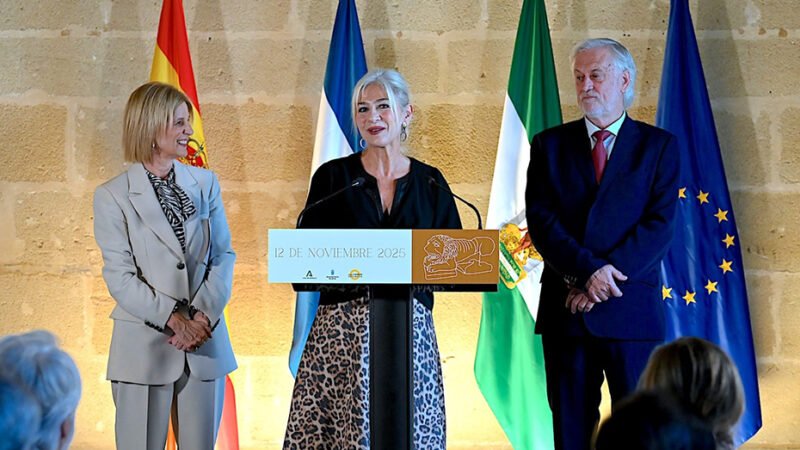La Junta adapta los partidos judiciales cordobeses para la nueva Ley de Eficiencia del Servicio Público de Justicia

The Ministry of Justice, Local Administration, and Public Function will meet the «strict deadlines» of the new Law on Efficiency of the Public Service of Justice that will represent «the greatest transformation of Justice in decades» and will start on Tuesday, July 1 with the implementation of the first phase. This involves the conversion of eleven out of twelve judicial districts in the province of Córdoba into trial courts. Only the capital will maintain its current structure until December 31, by which date the complete law with the last and third phase encompassing the capitals and major judicial districts must be implemented.
The reform, «driven by the Ministry of Justice, but without their financial support,» will bring about a radical change in the judicial structure, transitioning from individual bodies, led by a judge, a legal officer of the Administration of Justice (LAJ), and a team of officials, «to collegiate bodies, with a redistribution of officials in procedural processing units and common services,» explained the Minister of Justice, José Antonio Nieto, in a press conference.
Previously, during a meeting held with legal operators and representatives of the Personnel Board in Córdoba, Nieto thanked the judicial staff for their efforts and the concerns and contributions made by the professionals. «Since the law was published in January, the Board has not stopped working to adapt Justice to this profound reform in record time, despite the lack of state funding,» he stated.
In Córdoba, the Ministry of Justice has reinforced the judicial staff with eight additional officials, with an annual budget impact of close to 400,000 euros. This effort is part of a total regional investment of 57 million euros in Andalusia, necessary for the implementation of the law, which has been «entirely self-funded,» as the new law did not include financial provision upon approval.
Another novelty is the municipal Justice offices, which will replace the current Peace Courts, and will have a particularly significant impact in municipalities with larger populations, such as Palma del Río, where the pilot of this model will be implemented in the province. This will help alleviate the workload of neighboring courts like Posadas and bring services closer to the citizens. The goal is «to be able to carry out 85% of judicial procedures from these new offices.»
Gender-based violence and lack of judges
Nieto explained that the implementation of the Law is complicated in Córdoba with the regionalization of the gender-based violence courts in Lucena, Cabra, and Pozoblanco. Nieto criticized the «complete lack of knowledge by the Ministry» about the reality of the Cordoban territory and demanded a clear response: «Either the courts are kept as they are, or if regionalization is chosen, it must be done with territorial logic criteria.» Therefore, he advocated for the southern province, Lucena, to be the regional center, as there is no other reasonable option.»
The Ministry has also requested an increase in the number of specialized judges in gender-based violence from the Ministry, proposing «a minimum of 22 new judges compared to a clearly insufficient forecast, where only ten judges are allocated. «Once again, the Ministry is sidelining Andalusia, with 60 new judges allocated to Catalonia and none to our community,» the Minister denounced.
Lastly, Nieto also expressed concern about the strike called by judges from July 1 to 3, coinciding with the entry into force of the new law. «We share the essence of their demands, and I hope that an agreement can be reached with the Ministry and that they withdraw their legislative initiative, which only complicates and generates distrust around the judicial system.»






